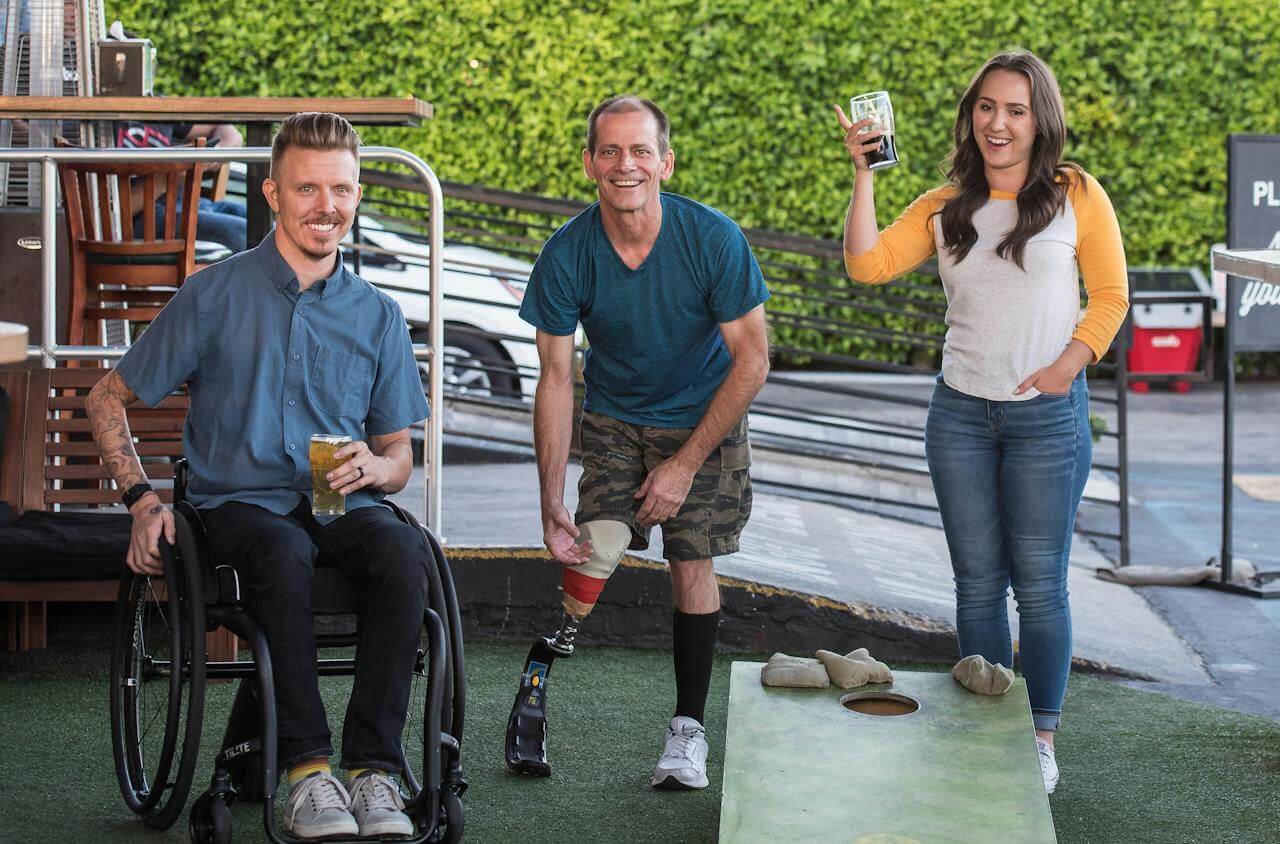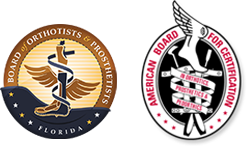Navigating life after limb loss is a journey that extends beyond physical rehabilitation. For many amputees, the emotional and psychological challenges can be just as significant as the physical adjustments. In this exploration, we delve into the profound impact of peer support groups within the amputee community, shedding light on the invaluable role they play in fostering connection, understanding, and empowerment.
Understanding the Emotional Landscape
Losing a limb often initiates a complex emotional journey that extends far beyond the confines of hospital walls. From grief and acceptance to the ongoing challenges of self-esteem and body image, amputees face emotional hurdles that are unique to their experiences. Peer support groups provide a safe and understanding space where individuals can share their stories, struggles, and triumphs without fear of judgment.
The Power of Shared Experience
Peer support groups thrive on the fundamental principle of shared experience. Within these communities, amputees connect with others who have walked similar paths, creating an immediate sense of camaraderie. This shared understanding fosters empathy, validation, and a profound sense of not being alone on the journey.
Meet Susan: A Beacon of Support
Susan, a lower-limb amputee, recalls the impact of joining a local peer support group after her accident. “In the beginning, I felt isolated and overwhelmed by the changes in my life. Meeting others who had faced similar challenges made me realize that I wasn’t alone in my journey. Their stories gave me hope and practical advice on navigating daily life with a prosthetic leg.”
Empowering Through Information
Peer support groups serve as invaluable hubs of information and knowledge exchange. Whether discussing the latest prosthetic technologies, sharing adaptive living tips, or recommending healthcare professionals, these communities empower amputees with practical insights that can significantly enhance their quality of life.
John’s Journey: Navigating Prosthetic Options
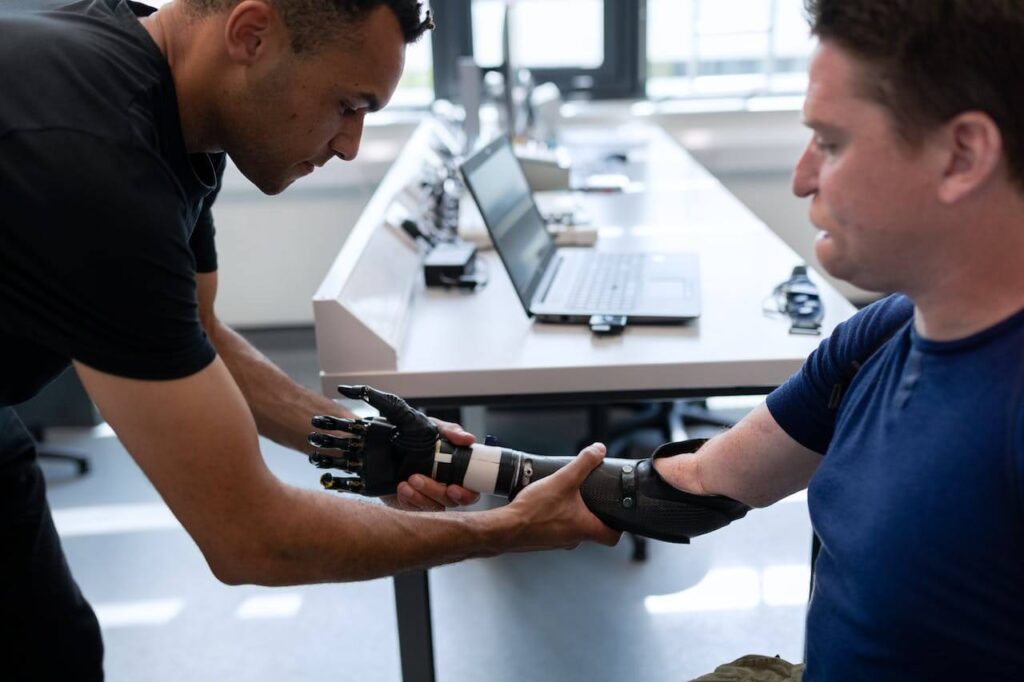
John, an upper-limb amputee, found immense value in the information shared within his support group. “Understanding the various prosthetic options available was overwhelming at first. Hearing firsthand experiences and recommendations from others in the group helped me make informed decisions about the type of prosthesis that would best suit my lifestyle and needs.”
Combatting Isolation and Stigma
Isolation and societal stigma often accompany limb loss, leading to feelings of loneliness and a sense of being misunderstood. Peer support groups counteract these negative emotions by providing a welcoming space where individuals can share their vulnerabilities without fear of judgment. This sense of belonging contributes significantly to the mental well-being of amputees.
Breaking Down Stigmas: A Collective Effort
Amelia, a member of a peer support group for amputee parents, emphasizes the importance of breaking down societal stigmas. “Through our group, we’ve been able to challenge misconceptions and educate others about the capabilities of amputees. It’s not just about supporting each other; it’s about changing perceptions and fostering a more inclusive society.”
Building Confidence and Self-Esteem
The journey of rebuilding confidence and self-esteem after limb loss is often an ongoing process. Peer support groups serve as a catalyst for this transformation, providing a platform where amputees can share their personal strategies for overcoming self-doubt and embracing their bodies.
Rob’s Story: From Self-Doubt to Self-Love
Rob, a young amputee, struggled with self-esteem issues after losing his arm. “Joining a support group introduced me to individuals who had faced similar insecurities. They shared their journeys of self-discovery and self-love, inspiring me to embrace my uniqueness. Now, I actively participate in group discussions to pay it forward and help others on their paths.”
Fostering Advocacy and Awareness
Peer support groups often extend their impact beyond the personal sphere, becoming advocates for amputee rights and raising awareness about the challenges faced by the community. By uniting their voices, amputees within these groups amplify their collective strength to create positive change on a broader scale.
Conclusion
In the tapestry of the amputee experience, peer support groups emerge as integral threads, weaving together stories of resilience, empowerment, and shared humanity. These communities not only provide solace in times of struggle but also serve as dynamic platforms for information exchange, advocacy, and the cultivation of a positive self-image.
As we celebrate the transformative power of peer support groups within the amputee community, let us recognize the strength that lies in unity. Through shared experiences, mutual encouragement, and a commitment to breaking down barriers, these groups illuminate the path towards a more connected, understanding, and inclusive society for amputees and their families.
